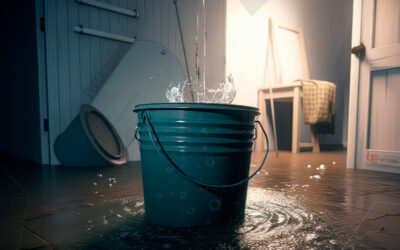Preventing water damage in your home requires proper maintenance and care. Some water damage just can’t be fixed: There’s floods, rain, storms, and plumbing accidents. However, water damage is often preventable. Here we look at the best strategies homeowners can use to prevent water damage in their home.
Water damage is devastating and costly. Water damage claims are the most common type of home insurance claim and can arise from many sources, including weather events, plumbing problems, roof leaks, and even landscaping.
Watch what you put in your pipes to avoid water damage.
Installation problems are often the cause of water damage. The best way to avoid this type of water damage is to be careful about what you put down your drain. Here are some things to avoid to keep your home plumbing healthy.
Plant carefully to avoid water damage.
Nothing beats a well designed home. If you have a green thumb and like tending to shrubs, bushes and trees, that’s great. However, be careful what and where you plant. The roots of trees, shrubs, and shrubs can often become water pipes leading into your home.
Tree roots are strong and can damage pipes. A defective or leaking water pipe causes water damage in your home. Don’t plant anything with an extensive root system around pipes.
Your water bill can be the first sign of water damage.
Small but continuous spills can go unnoticed and cause major water damage. Sometimes the only way to find such leaks is to closely monitor your water bills. Monitor your water bill for changes to notify you of changes in water usage. Keep track of your monthly water bill and investigate any changes in water usage.
Tree roots are strong and can damage pipes. A defective or leaking water pipe causes water damage in your home. Don’t plant anything with an extensive root system around pipes.
Clean gutters regularly to prevent water damage.
Cleaning gutters may seem like a chore you can put off for a while, but clogged gutters can cause water damage in your home. Make sure the gutters are clean and free of debris so they can drain water off the roof.When your gutters are clogged, water collects on your roof and damages your roof and ceiling.
Clean your gutters twice a year to prevent water from entering the roof and causing damage.
Harsh Chemicals.
Sometimes a clogged drain is unavoidable. Not all clogged pipes cause water damage if you’re careful. If you have a shower or sink that drains slowly, you likely have a clogged drain. But before you pour harsh chemicals down your drain to clean a pipe, think again. Harsh chemicals can eventually damage drains, causing leaks and water damage.Instead, use a hose to unclog the clog, or call a professional plumber for help.
Grease.
Don’t pour oil down the drain. As the fat cools, it will solidify and may become stuck in the tubes.It can trap other smaller particles and eventually clog the drain. Clogged plumbing pipes can cause water damage in the kitchen.
Roof Damage Can Cause Water Damage.
A healthy roof is one of the best defenses against water damage. Like any other part of your home, the roof needs maintenance. Check your roof regularly to make sure it is in top condition.Roof damage can lead to water damage in your home. Start with these areas:
Shingles: Look for raised or damaged shingles. The shingles are designed to allow water to drain off the roof, but they cannot function properly if damaged. The result is water damage on the roof.
Flashing: To prevent water damage to the roof, ensure the flashing is in good condition.If the flange lifts or breaks, it must be repaired or replaced. Pay particular attention to areas with chimneys, vents, or roof joints.
Seals around the vents: Check the seals around the roof vents for cracks.
window seals and seals can cause water damage.
Another area of your home that needs maintenance is around the windows.
Windows that are not properly caulked and sealed can allow water to seep in and cause significant water damage.Even a small amount of moisture near windows can lead to mold and rot.
Check your windows regularly to ensure the seals are not torn and that the seal is well protected to prevent water damage around the windows. Look for signs of water damage in the home, such as: B. Warping, peeling paint and discoloration.








0 Comments